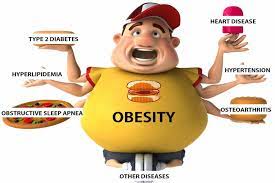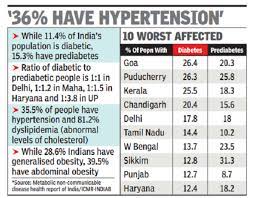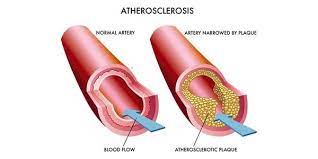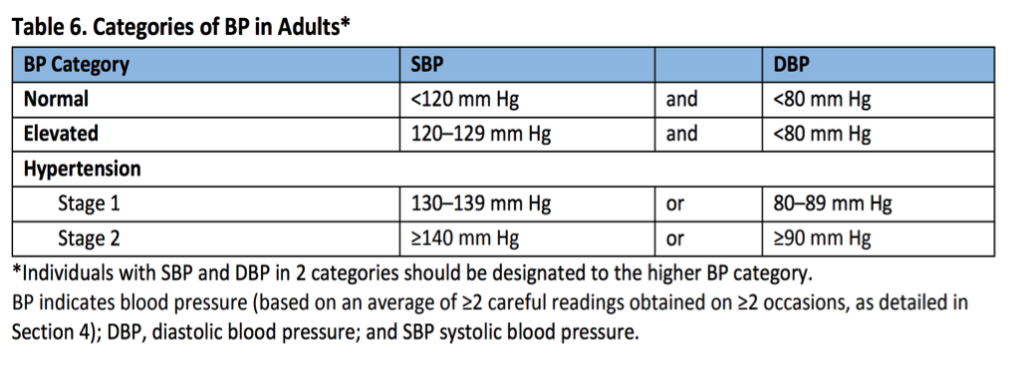Obesity or overweight, a state of excess accumulation of fat in the body, may lead to various diseases. When an individual is obese, their excess body fat can have detrimental effects on overall health as well as on heart health.

The heart has to work harder to pump blood in obese individuals, and this extra strain on the heart can lead to hypertension, heart muscle disease, heart rhythm abnormalities, enlarged heart and heart failure. It has recently come to limelight that a condition called “Obesity cardiomyopathy” accounts for a significant proportion of heart failure and can only be managed by experienced cardiologists.
A recent study by the Indian Council of Medical Research has shown that our country now has 101 million diabetics, with a further 136 million pre-diabetic individuals in need of prevention as shown in the statistics in the Metabolic non-communicable disease health report of India, ICMR.
The study also looked at the number of people with hypertension, central obesity and generalized obesity.

The vicious cycle
There is strong scientific evidence to show that obesity plays a key role in the causation of diabetes, hypertension and cholesterol abnormalities and together they contribute to the condition called Metabolic Syndrome. The vicious cycle of obesity worsening your blood sugar, blood pressure and cholesterol levels which in turn leads to deterioration in lifestyle and pushes one into further obesity, has to be halted right in the beginning. In fact, these are the most sinister precursors of killer diseases like heart attack and stroke. If you are wondering how being obese predisposes an individual to deadly ailments, the excess fat that builds up inside the arteries supplying the heart and brain – a condition known as atherosclerosis – is the culprit.

Timely detection and an early intervention are very important in addressing the obesity burden that the world is facing today. While maintaining an ideal body weight should be high priority right from the age of adolescence, the warning signs that warrant immediate medical attention in obese people are:
- Fatigue or excessive tiredness
- Shortness of breath
- Inability to do their routine activities
- Excessive snoring and daytime sleepiness
- Swelling of feet, frequent coughs and colds
- Chest pain
- Palpitations
People with obesity not only face many physical challenges but significant emotional challenges too. Obese individuals may develop depression, anxiety, mood swings and eating disorders; hence it is vital to keep your loved ones on a routine medical follow-up and provide them adequate emotional support.
The causes for obesity are many
Lack of exercise, unhealthy food choices, chronic mental stress, long work hours, lack of sleep are some of the modifiable causes of obesity and the Metabolic Syndrome. It is important to identify and treat any underlying medical conditions like thyroid hormonal insufficiency and polycystic ovarian syndrome while correcting the lifestyle factors.
But the solution is simple
Overcoming obesity can be simple with the right knowledge, awareness, help and guidance.
Changes in lifestyle such as making healthier food choices, exercising regularly for at least 30 minutes daily, practicing good sleep hygiene, adopting stress management strategies and keeping a track of the silent killers namely BP, blood sugar and blood cholesterol are the cornerstones of beating obesity.
A simple measure of your waist and knowing your body mass index can reveal a lot about your heart health, talk to your healthcare provider about it. Please refer to our earlier article on this topic: http://www.cardiacwellnessinstitute.com/heart-disease-treatment-prevention/uncategorized/metabolic-syndrome-a-threat-to-heart-health/
Below are a few tips that are rather simple to follow and easy on the pocket too:
- Restrict use of processed and packaged foods
- Stock your refrigerator / pantry with fresh fruits and veggies
- Reach out to a variety of nuts and seeds like almonds, walnuts, sunflower seeds etc. as a snack instead of cookies and biscuits
- Eat whole grains and pulses, limit use of refined grains and flours like maida, polished rice, sugars, and artificial sweeteners.
- Learn to manage food portions well; use a smaller plate during meal times
- Our humble buttermilk and lime juice are far better and healthier alternatives to soft drinks and packaged juices
- Practice a good sleep routine; avoid the use of gadgets and bright screens prior to sleep
- Ensure adequate water intake
- Incorporate physical activity in your daily routine – use steps instead of elevators, park your vehicle a bit far away and walk to your office or the supermarket, try a walking break for 5-10 minutes every 1-2 hours while at work and learn; incorporate regular brisk aerobic exercise along with muscle strengthening exercises on a regular basis
In summary, obesity is a universal problem that significantly increases the risk of heart disease and several other chronic ailments. Taking proactive measures to address obesity through lifestyle changes is vital in promoting heart health and avoiding other comorbid conditions.

